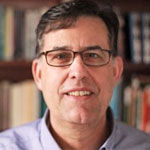In a recent conversation with a seminary professor, we talked on a topic of great interest to me as a pastor engaged in training the next generation. He told of how he has been teaching Greek to members of his local church. He said that they started out with a class of fifty-five and ended up with six, but that decline in participation did not discourage him. He said that those six church members could now read their Greek New Testament. And they did it all without enrolling in seminary! He added that he thought the local church should be involved in training its people for gospel ministry. I agreed. Our discussion continued on the local church as the focal point of training men and women for gospel work to the nations.
His example represents the local church’s involvement in training people for ministry beyond their local congregation. The typical church’s approach with someone that expresses a call to gospel ministry has been to immediately send him to a seminary for training. While every local church may not be able to replace a theological seminary education (and I am not advocating such replacement), churches must realize that seminaries cannot replace the shaping influence of the local church community for future ministry. Instead, churches must not relegate to seminaries what local churches do best: preparing the next generation for gospel-centered ministry by mentoring young ministers in the context of church community.
The New Testament places priority on the local church and not outside institutions. The church alone is called the bride of Christ (Eph 5:22–33; Rev 19:7–9; 21:2; 22:7) and the corporate entity for fulfilling the Great Commission (Matt 28:18–20; Acts 1:8). Jesus Christ ordained the church (Matt 16:13–20), died and rose from the dead to secure it (Eph 5:25–27), and made it to be a kingdom of priests engaged in worship and proclamation (1 Pet 2:4–10; Rev 1:5–6; 5:9–10). So, the church best serves Christ’s mission and therefore, best prepares its workers.
Ironically, some missiologists have objected to the priority of the church in God’s mission. The late Ralph Winter insisted that the New Testament gave the responsibility of nurturing to the local church but the apostolic focus on evangelism to missionary organizations outside the church, which he called “sodalities.” [1] The work of missions, in Winter’s view, belongs to sodalities not to the church. Yet his position totally bypasses Jesus Christ’s commission to the church! D. A. Carson called the Great Commission to the eleven disciples paradigmatic for all disciples. [2] The most natural means for disciple making takes place through the church, especially since Christ’s commission to make disciples calls for baptism and ongoing teaching, which are distinct responsibilities for the church. Consequently, the local church as the means for disciple making also holds the key to training ministers.
Thankfully, a number of leaders in theological education recognize the sometime-disconnect between seminary education and the reality of living out the gospel in community. Timothy George muses that he prefers a residential community for seminarians where professors and students live, work, play, and flesh “out the meaning of the gospel together.” [3] In other words, he recognizes that what the church has been created to do—live, work, play, and flesh out the meaning of the gospel together—is necessary to properly shape the rising generation of Christian ministers. Robert Ferris points out that other generations maintained the wedding of community and theological training until the rise of Friedrich Schleiermacher’s influence on “theology-as-science,” or information dump, instead of spiritual formation in community. [4] Academic sterility neglects spiritual formation by isolation from local church ministry.
While theological institutions play an important role in training for ministry, it is the experience of mentoring relationships in the church living out the gospel, modeling forgiveness, service, and accountability that prepares the rising generation for the work of ministry. A healthy church not only proclaims the gospel audibly but also makes it known visibly through the way that believers live together in community. This distinction gives those involved in pastoral and missionary work a realistic rather than theoretical approach to ministry. Therefore, an organic partnership with local churches and theological institutions may best train the next generation’s ministers.
Phil A. Newton
_______________
[2]
D. A. Carson, Matthew 13–28 (EBC; Frank E. Gaebelein, gen. ed.; Grand Rapids: Zondervan, 1995), 596.[3]
“50 Years of Seminary Education: Celebrating the Past, Assessing the Present, Envisioning the Future,” Christianity Today 50/10 (Oct 2006): S13.















